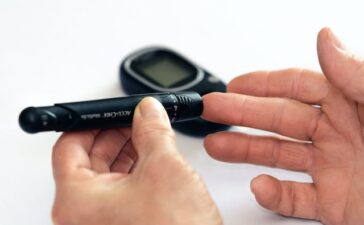For many years women commonly avoided eating fish and offering it to their children due to concerns about mercury, however things have changed. Instead of recommending strict guidelines for maximum consumption, now the FDA, USA and Environmental Protection Agency (EPA) are encouraging women who are pregnant or nursing as well as young children to consume a minimum amount of fish each week.
What’s An Adequate Amount?
For mums who are pregnant or breastfeeding, consuming around 225 – 240 grams of low-mercury variety of fish every week will enable these women and their young children to gain in the numerous benefits offered by fish, such as the neuro-developmental benefits derived from omega 3 fatty acids (consumption of fish can boost your little one’s IQ!). This amounts to having about 2 to 3 single servings of fish each week. Babies and toddlers should have the same number of servings each week though in proportion to the amount of calories they need and their age.
Which Fish Are Low-Mercury?
The reason behind the initial cap put on the consumption of fish for pregnant and breastfeeding mums and young children were due to the levels of mercury fish could possibly contain as this harmful element is associated with several health and developmental related problems in children. The key solution to this problem is to avoid high mercury fish and only consume low-mercury fish to completely avoid or, at least greatly reduce the amount mercury consumed. Low mercury species of fish include:
- Rainbow and ocean trout
- Tasmanian and Atlantic salmon
- Blue-eye trevalla also known as Blue-eye cod
- Snapper, bream and barramundi
- Redfish and jewfish
- Sardines, whiting and flathead
- Mullet and mackerel
- Hoki and Hake
Which Fish Are Best To Avoid?
In Australia, pregnant women should limit or avoid the following fish:
- Swordfish
- Shark (flake)
- Marlin
- Orange Ruffy
It’s also strongly recommended that mums and young children’s consumption of white albacore tuna be limited to 170 grams a week. Is Sushi Safe Then? Next, comes the question on every pregnant and breastfeeding sushi lover’s mind – is it safe to consume sushi then? Although sushi might be a significant part of Japanese womens diets, the same concerns are still present although women are now being encouraged to eat fish.
The three main food-borne pathogens that create concern in regards to raw fish consumption are:
- Listeria monocytogenes
- Toxoplasma
- Salmonella enterica
Each of these pathogens can easily pass through the bloodstream to developing fetuses or through a mother’s milk to her nursing baby, so before indulging yourself at your local sushi restaurant’s all you can eat special make sure you talk to your obstetrician or doctor first.





